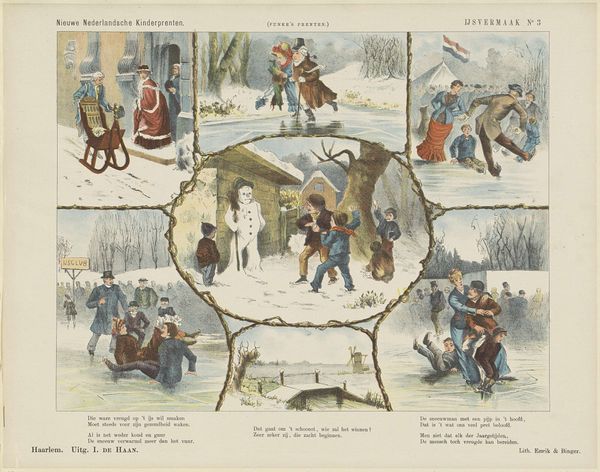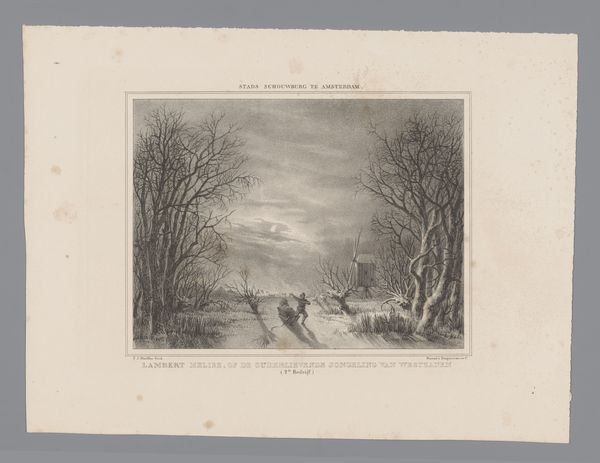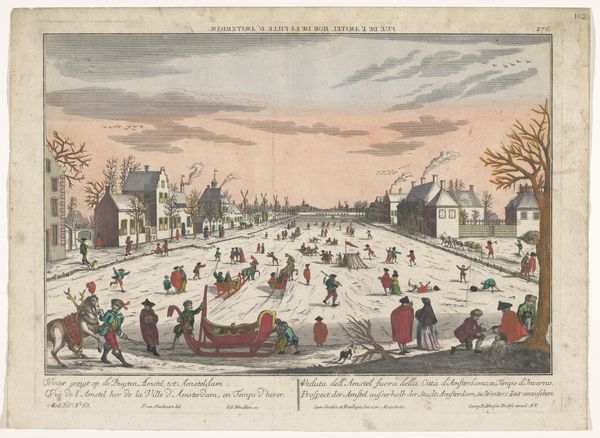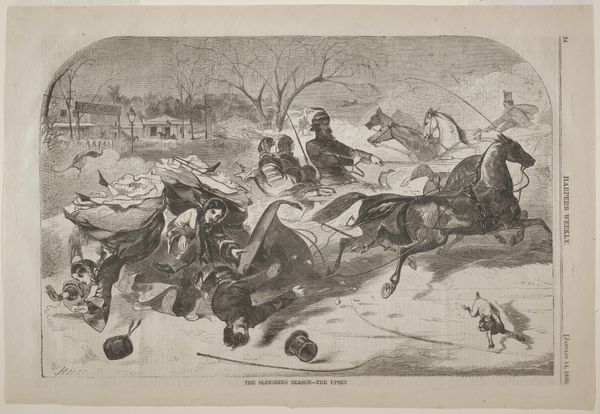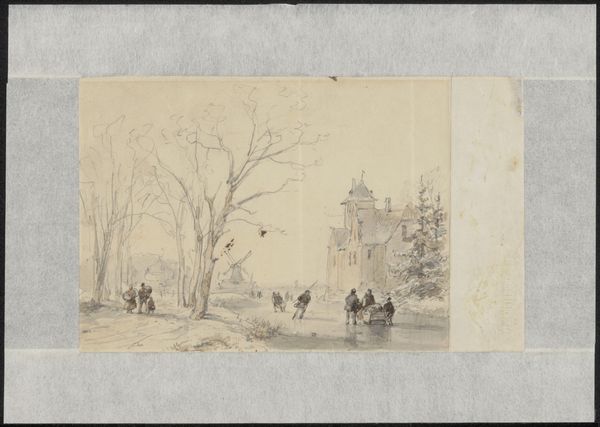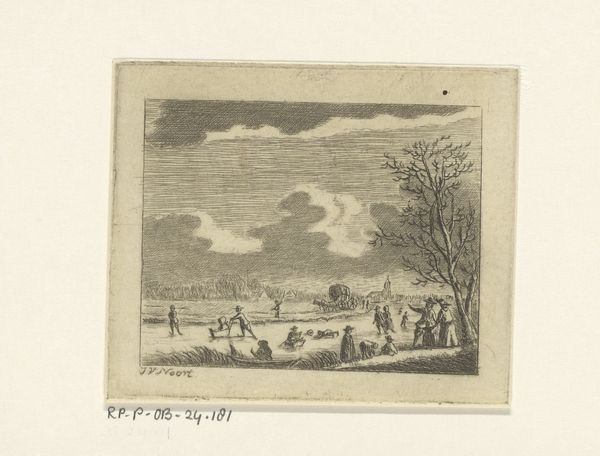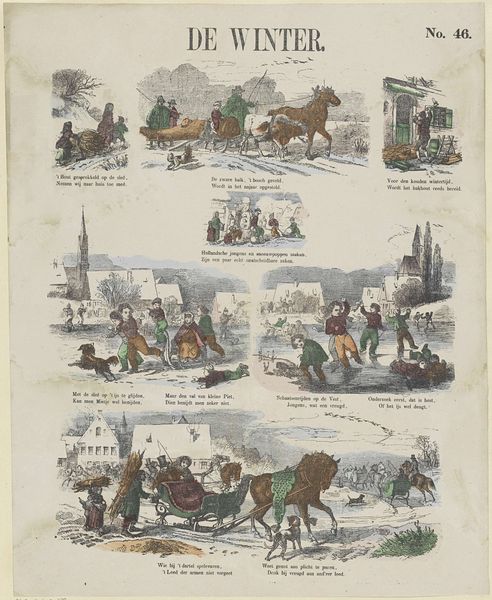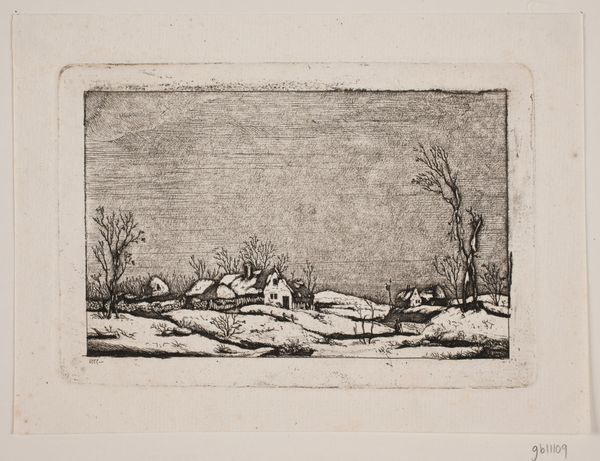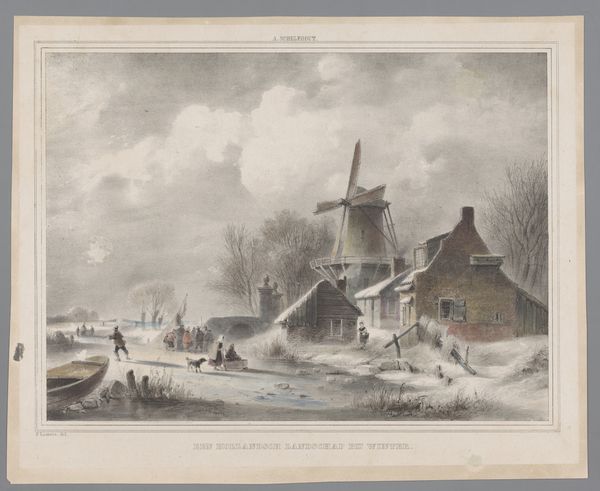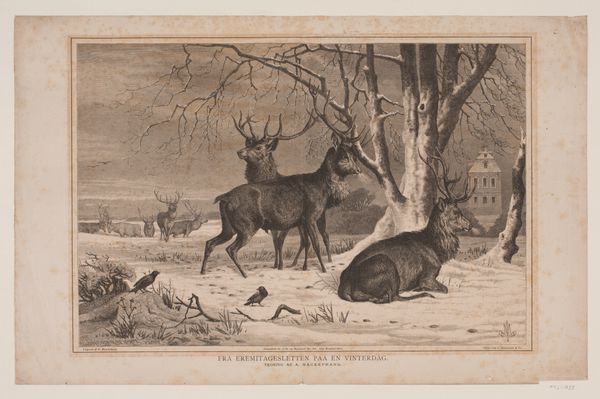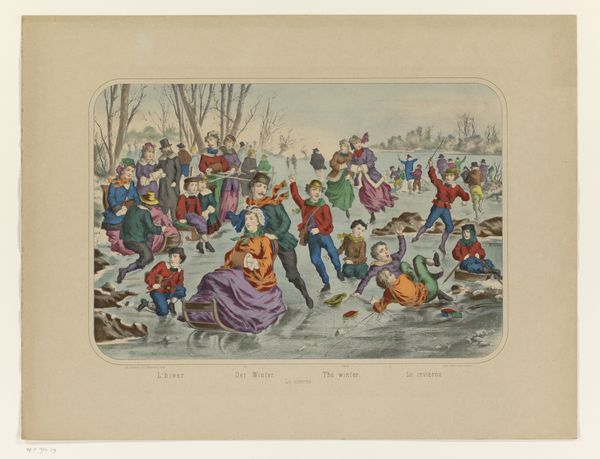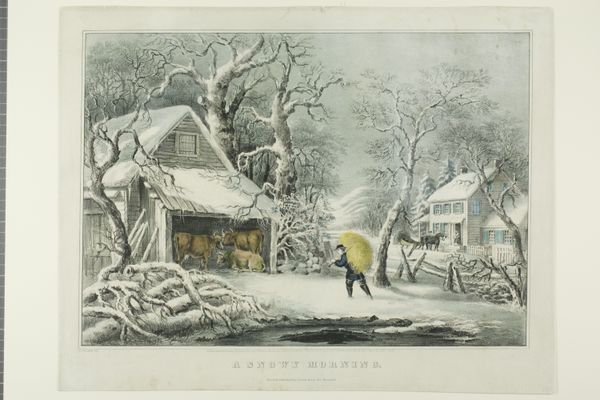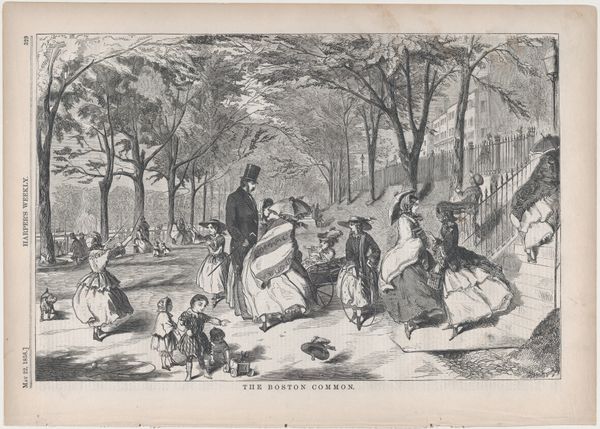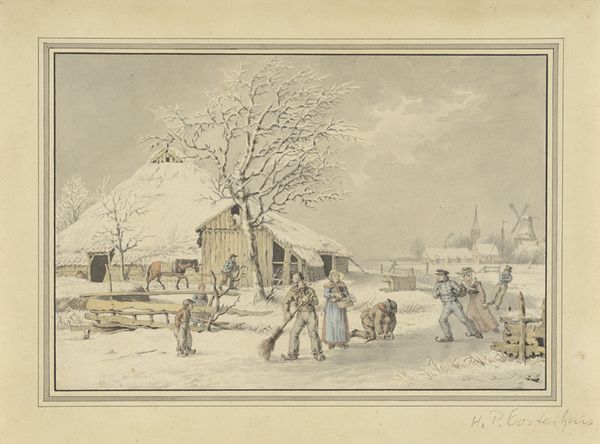
Dimensions: sheet: 13 1/2 x 18 1/8 in. (34.3 x 46 cm) image: 8 1/16 x 12 3/4 in. (20.5 x 32.4 cm)
Copyright: Public Domain
This print, “Moon Light in Central Park,” was created by Haskell and Allen in the 1870s, using lithography. That's a printing process involving a flat stone or metal plate treated to repel ink, except where it's required for printing. Lithography allowed for the relatively quick and inexpensive creation of images. The technique democratized image production, making art accessible to a wider audience. This print captures a winter scene in Central Park, with people skating and riding horse-drawn sleighs. The details in the figures and landscape suggest the careful hand of the artist. The popularity of lithographs speaks to the rise of consumer culture in the late 19th century. Prints like this one were produced for mass consumption, reflecting a shift in how people experienced and interacted with art. Rather than being unique objects, artworks became reproducible commodities. Appreciating the lithographic process helps us consider the social and economic context in which this image was made, and to understand it as both a work of art and a product of its time.
Comments
No comments
Be the first to comment and join the conversation on the ultimate creative platform.
